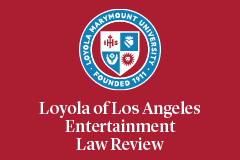Abstract
The social media “influencer” has become a powerful marketing tool for American businesses to advertise their products and services. Foreign influencers have the ability to help American businesses reach international markets and are an effective solution to the marketing challenges that come with trying to break into these international markets. However, if a foreign influencer visits the United States and performs paid marketing work for an American business without a work visa, then the influencer will have violated U.S. immigration law. Indeed, even a seemingly harmless sponsored Instagram post may be a violation.
The clear solution to this problem would be for the foreign influencer to obtain a work visa in advance; however, current U.S. immigration law makes obtaining one very difficult. Further, the restrictive conditions of the work visas available to foreign influencers are not favorable due to unique characteristics of the influencer occupation. This Note examines the shortcomings of immigration law in the context of social media influencers and proposes reforms that would allow and encourage foreign influencers to legally perform marketing work in the United States for American businesses.
First, this Note examines each of the visa categories that are available to foreign influencers and addresses the challenges they are likely to face in the petitioning process and even after they have been approved for the visa. Next, the Note proposes reforms to current U.S. immigration law and alternatively suggests a new visa category for influencers. Finally, this Note provides general recommendations for reform in consideration of other areas of law that have also struggled to address the new norm that is social media marketing.
Recommended Citation
Sydney Wong,
Influencing Immigration: The Need for Immigration Reform in the Age of Social Media Influencers,
42 Loy. L.A. Ent. L. Rev. 1
(2021).
Available at: https://digitalcommons.lmu.edu/elr/vol42/iss1/1


